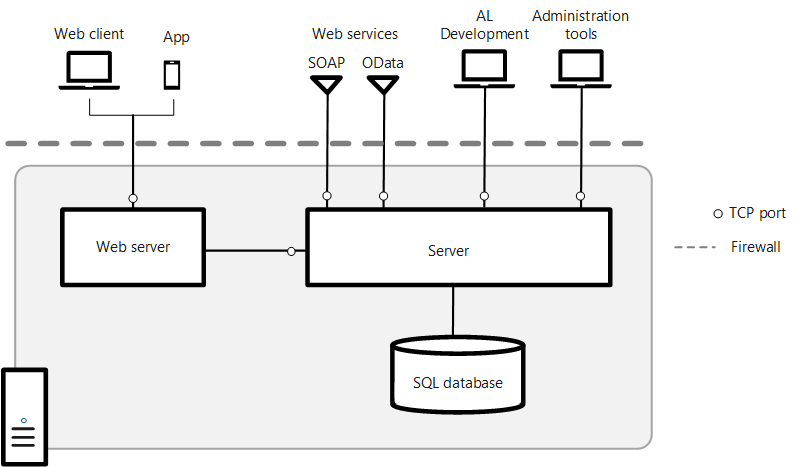
A proxy server is a computer network which routes requests to a website, and then returns the response. An IP address is the unique identification of a device within a network. Without an IP address, computers can't communicate with one another. Additional information about a user can be found in the IP address.
Proxy servers is a type web firewall.
A proxy server is a type of web firewall that can be configured to redirect traffic in order to protect an organization's network. It can either block access to the company's network from outsiders or make requests to an external network. A proxy server is a powerful tool to help protect a network from viruses and hackers. These systems can also be used for filtering content within an organization.
These systems are far more sophisticated than traditional firewalls that filter packets. They require more computing resources. These systems offer better security and more control over the access of applications to the system.

They save content
Proxy servers cache information for many reasons. One reason for proxy servers is to speed up websites. Proxy servers provide many benefits. A proxy server that is reliable will cache objects with a longer time to live (TTL) than the average. It will also cache objects at peak times. Multiple users can access the cached object without having to re-download the original source.
Clients can access data stored in the proxy server's memory cache when they request a webpage. Clients get the cached data back much faster than requests to the destination servers. Furthermore, the proxy server consumes much less bandwidth to cache the data locally than the destination server.
They can translate site content into local languages for clients
A proxy server is an effective way to localize websites in different languages. These servers sit between the source website and the client, and route traffic through them on the way to the desired address. The content is translated in real time, either by human or machine translation, and stored in translation memory. When the translated content reaches the second web server, it recreates the structure of the site in the local language.
A website translation proxy can make it much easier to translate a website. It reduces the need to hire a localization specialist, and allows translators to focus on the content instead of on the site's design. It eliminates bottlenecks and gives linguists control over the entire process. Also, proxy sites don't need to be developed in multilingual CMSs, which reduces development costs.

They can enhance network performance
By caching URLs and pages, a proxy server can help improve network performance. Caching saves bandwidth by minimizing the time it takes to fetch a site from the original server. It makes web browsing easier by reducing data transfer from one server.
As more people use the internet and sites, the traffic volume on networks also increases. This can lead to overloading proxy servers in some cases. This can result in packet loss and slowing the internet. Using a proxy helps reduce the impact of this overload.
FAQ
What is the cost of building a website?
It depends on what your website is used for. Google Sites is a free service that may be available if you only want to publish information about yourself and your business.
However, if you want to attract visitors to your website, you'll likely want to pay for something more robust.
The most popular solution is to use a Content Management System (like WordPress). These programs can be used to build a website quickly and easily without having to know any programming. You won't be hacked because these websites are hosted by third parties.
Squarespace offers a great way to build your website. They offer a variety of plans ranging from $5 per month to $100 per month, depending on what you want to include on your site.
Can a strong portfolio make me more likely to get hired as web developer?
Yes. A portfolio is essential when landing a web designer or developer job. Your portfolio should include examples of your skills.
Portfolios usually include samples of past projects. These samples can show off your ability to do any task. You should have everything in your portfolio, including mockups.
How to design a website?
The first step is to understand what you want your site to do for your customers. What do they look for on your site?
What kind of problems can they have if they cannot find what they want on your site?
You now need to know how to fix the problems. It is also important to ensure your site looks great. It should be easy to navigate.
Your website should be well-designed. It should not take too much time to load. If it does take too long, people won't stay as long as they would like to. They'll move elsewhere.
You need to consider where your products are located when you build an eCommerce website. Do they all reside in one spot? Or are they scattered around your site?
You need to decide whether you want to sell one product at once or many different types of products. Do you want to sell just one type of product or multiple kinds?
These questions will help you decide if you want to build your website.
Now, it's time to take care of the technical aspects. How will your website work? It will it work fast enough? Is it possible to access the information quickly using a computer?
Will people be able to buy something without having to pay extra? Do they need to register in order to buy anything?
These are essential questions that you need to ask yourself. Once you know the answers to these questions, you'll be ready to move forward.
What is a static site?
A static website is a site where all content are stored on a server, and visitors can access it via web browsers.
The term "static" refers to the fact that there are no dynamic features such as changing images, video, animation, etc.
This type of site was originally developed for use in corporate intranets but has since been adopted by individuals and small businesses who want simple websites without the complexity of custom programming.
Because static websites require less maintenance, they have grown in popularity. It's easier to update and maintain static sites than a website that has many components (such blogs).
They also load quicker than their dynamic counterparts. This makes them perfect for users who are using mobile devices or have slow Internet access.
Static websites are also more secure than dynamic ones. There's nothing to hack into a static website. Hackers have limited access to data within a database.
There are two main ways you can create a static web site.
-
Using a Content Management System (CMS)
-
Create a static HTML web site
Which one you choose depends on your requirements. A CMS is a good choice if you are new to website creation.
Why? Because it allows you to have full control over your website. You don't even need to hire someone for help setting up your CMS. Upload files directly to the CMS.
Still, you can learn to code and create static websites. You will need to spend some time learning to program.
Can I use HTML & CCS to build my website?
Yes, you can! It's possible! You need to have basic knowledge in web design and programming languages, such as HTML (Hyper Text Markup Language), CSS and Cascading Style sheets (Cascading CSS Sheets). These two languages make it possible to create websites accessible by all who have an internet connection.
Statistics
- It enables you to sell your music directly on your website and keep 100% of the profits. (wix.com)
- Is your web design optimized for mobile? Over 50% of internet users browse websites using a mobile device. (wix.com)
- The average website user will read about 20% of the text on any given page, so it's crucial to entice them with an appropriate vibe. (websitebuilderexpert.com)
- It's estimated that chatbots could reduce this by 30%. Gone are the days when chatbots were mere gimmicks – now, they're becoming ever more essential to customer-facing services. (websitebuilderexpert.com)
- Studies show that 77% of satisfied customers will recommend your business or service to a friend after having a positive experience. (wix.com)
External Links
How To
What is Website Hosting?
Website hosting is the place where visitors go to visit a website. There are 2 types.
-
The cheapest option is shared hosting. Your website files reside on a server owned by someone else. Customers who visit your website send their requests via the Internet over to that server. You then receive the request from the owner of the server.
-
Dedicated Hosting - This option is the most costly. Your website is located on only one server. There are no other websites sharing space on the server. Your traffic remains private.
Shared hosting is cheaper than dedicated hosting for most businesses. You can use shared hosting if the company owns the server to provide the resources required for your website.
However, both have their advantages and disadvantages. Here are the differences:
Sharing Hosting Pros
-
Lower Cost
-
It's easy to set up
-
Frequent updates
-
It can Be Found On Many Web Hosting Companies
Hosting shared with others can cost as low as $10/month. Remember that shared hosting usually comes with bandwidth. Bandwidth is how much data you can transfer to the Internet. You may have to pay extra for large amounts of data, even if your blog only contains photos.
Once you start, you'll quickly realize why you were paying so much for your previous host. Most shared hosts have very poor customer support. You'll be on your way after they walk you through setting it up.
A provider with 24-hour telephone support is a good choice. They will attend to any issues you have while you sleep.
Cons of dedicated hosting
-
More Expensive
-
Less common
-
Requires specific skills
With dedicated hosting, everything you need for your website is at your fingertips. You won’t need to worry whether you have enough bandwidth or enough RAM (random address memory).
This means that upfront, you'll need to spend a bit more. However, once your business goes online, you'll discover that you don’t need as much technical support. You will become an expert in managing your servers.
Which Is Better for My Business?
This depends on the kind of website that you want. If you only want to sell products, then shared hosting might be the best choice. It is easy to set-up and manage. Because you share a server, you will most likely receive frequent updates.
However, dedicated web hosting is the best way to build a community around you brand. You can focus on building your brand without worrying about handling your traffic.
Bluehost.com is a web host that offers both. Bluehost.com offers unlimited monthly data transfers, 24/7 customer support, domain registrations free of charge, and a 30-day guarantee for your money back.